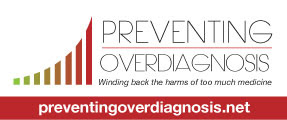For my students in 2018, it's difficult to imagine an era when there was no such thing as evidence-based medicine (EBM). When I started medical school in 1997, though, the term had only been in use for six years, having been introduced by Dr. Gordon Guyatt at McMaster University (though EBM's intellectual origins
can be traced to several key individuals). When I tell trainees how recently EBM began, they often ask, "Well, then, what kind of medicine did physicians practice before?" The answer is, we largely practiced "eminence-based" medicine (but
this tongue-in-cheek article offered some equally poor alternatives).
Although it may be well established, the primacy of EBM is more fragile than it seems. In the September 15 issue of
American Family Physician, my longtime mentor and editor emeritus Jay Siwek, MD reviewed
common misconceptions, barriers, and practical solutions. For example, evidence can be distorted by financial conflicts, misinterpreted though the lens of one's preexisting beliefs, or ignored by those who deride evidence-based practice guidelines (incorrectly) as "cookbook," "one-size-fits-all" medicine. A
recent essay in
BMJ also described threats to evidence-informed policy making driven by ideological decisions on both ends of the political spectrum:
We tend to alight on examples of harmful interventions that fit our own political preferences. For example, ... public health researchers leaning towards the left might cite evidence that abstinence only sex education is more likely to lead to increased sexual risk behavior than comprehensive sex education. ... But only referring to examples where the evidence aligns with our own preferences risks suggesting to those on the left that they do not need evidence to know what does not work (as it is just obvious), and to those on the right that evidence informed policy is a liberal conspiracy.
EBM has experienced serious setbacks in the past few months. One, which
I discussed previously, was the shuttering of the National Guideline Clearinghouse, a vital repository of evidence-based guidelines that was maintained by the Agency for Healthcare Research and Quality. Another is the
Sept. 14 resignation of health services researcher Dr. H. Gilbert (Gil) Welch from Dartmouth College. Described as "an internationally recognized expert on the effects of medical screening and overdiagnosis" in his
official Dartmouth biography, Welch
literally wrote the book on overdiagnosis, which makes the university's determination that he plagiarized ideas in a
2016 paper puzzling at best. Welch resigned in response to Dartmouth's demands that he make his accuser the first author on the paper and stop teaching at the school. He has denied the plagiarism accusation, and the
New England Journal of Medicine has declined to retract the article, viewing it as an authorship dispute rather than a breach of ethics. Although I hope that Dr. Welch's work will continue, his resignation is not only a huge loss for Dartmouth, but for all who have followed and benefited from his seminal work on the downsides of screening, including me.
On the same day as Dr. Welch's resignation, another giant in evidence-based medicine, Dr. Peter Gotzsche, was
unceremoniously dismissed from the governing board of the Cochrane Collaboration and expelled from membership in the group. Previously the director of the Nordic Cochrane Center and author of 17 Cochrane reviews, Dr. Gotzsche called his explusion from the organization emblematic of a "
moral governance crisis" and accused Cochrane's executive team of sacrificing scientific rigor and open debate in a "growing top-down authoritarian culture and an increasingly commercial business model." Cochrane leadership had been annoyed by Dr. Gotzsche's co-authorship of a
BMJ Evidence-Based Medicine critique of a
Cochrane review of HPV vaccines, which
some felt was overblown and might shake public confidence in the vaccine. But their action sent the chilling message - antithetical to the democratic values at the heart of EBM - that open dissent would not be tolerated.
Thankfully, the news isn't all bad for EBM.
An article by fellow
AFP Deputy Editor Mark Ebell and colleagues in the September
Annals of Family Medicine celebrated the top 20 POEMs (summaries of studies of patient-oriented evidence that matters) of the past 20 years. Since 1998, this group has systematically reviewed
more than 100 clinical medical journals for such studies. My EBM teaching favorites from
the top POEMs list include those from 2002 (hormone replacement overall is not beneficial), 2009 (prostate-specific antigen screening does not reduce mortality from prostate cancer), and 2013 (fasting is not necessary before measuring lipid panels). Congratulations to the "POETs" for their past contributions, and for continuing to do the yeoman's work of bringing medical evidence to the point of care in primary care.











